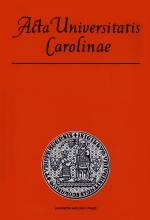K otázce uplatňování zákazu reformace in peius ve správním řízení obecném a trestním
On the Application of the Prohibition of Reformation in Peius in General and Criminal Administrative Proceedings
Author(s): Martin KopeckýSubject(s): Law, Constitution, Jurisprudence
Published by: Univerzita Karlova v Praze, Nakladatelství Karolinum
Summary/Abstract: The rule prohibiting reformation in peius is a result of the declaratory (directory) nature of appeal; it subsists in that the body deciding exclusively on the appeal lodged by a participant in proceedings, or in his favour, may not deteriorate the standing of this participant by its decision. The prohibition of reformation in peius may apply in subsequent stages of proceedings following the reversal of the original decision. The prohibition of reformation in peius reduces the fear of the participant to file an appeal since the appellate proceedings may lead to the worsening of the participant’s standing if compared with his position established by the decision the participant intends to appeal. Although the principle of the prohibition of reformation in peius has traditionally been applied in criminal proceedings where it is considered to be the principle guaranteeing the freedom to appeal and the right to defence, it can also be found in administrative procedure. The article analyses case law applicable to the Administrative Procedure Code 1928 which enabled the appellate body to change the decision of an inferior body against the appellant only to a very limited extent justified by a serious public interest based on the law. This principle was even more strictly applied in the area of administrative proceedings with respect to criminal matters. After 1948 the principle of prohibition of reformation in peius did not apply to administrative procedure; the appellate body, in its reviewing the inferior decision, was not bound by the motions of the appellant and might worsen his position. The principle prohibiting reformation in peius was restored in Czech administrative procedure and reinstated in the Act on Administrative Infractions 2000. The Code of Administrative Procedure 2004 reduced the right of an appellate body to decide against the appellant in general administrative proceedings, however, the formulation of exceptions is rather unclear. The article analyses the limits of applicability of the prohibition of reformation in peius in general administrative proceedings and in proceedings with respect to administrative delicts.
Journal: Acta Universitatis Carolinae Iuridica
- Issue Year: 56/2010
- Issue No: 1
- Page Range: 203-211
- Page Count: 9
- Language: Czech

